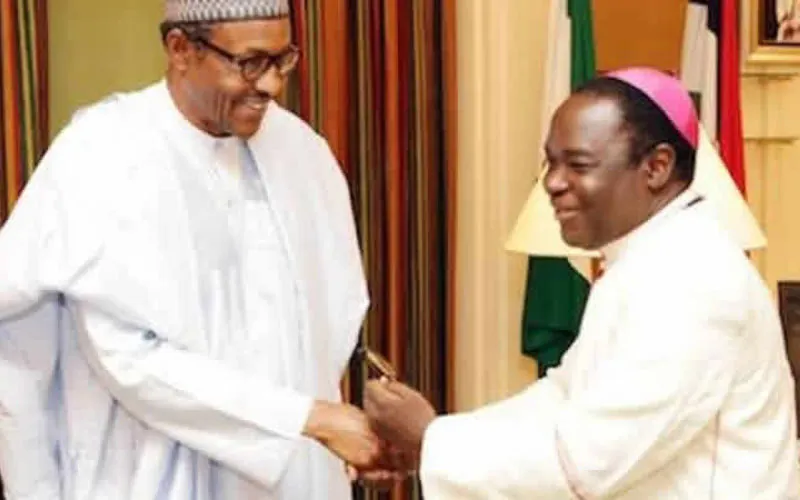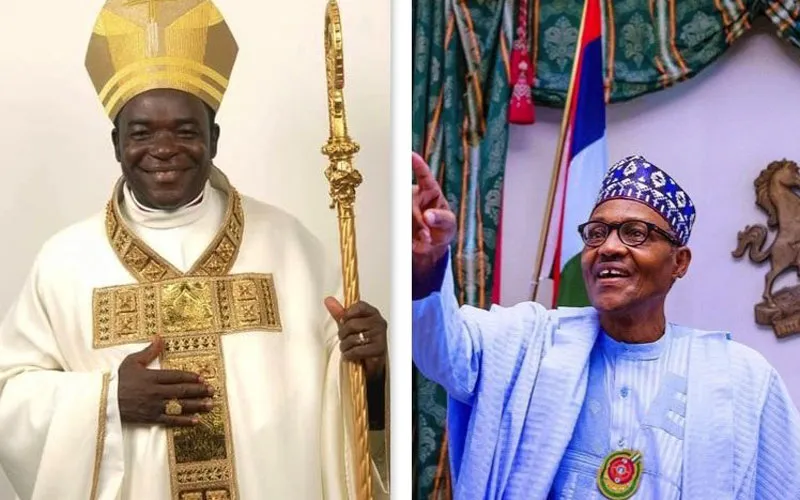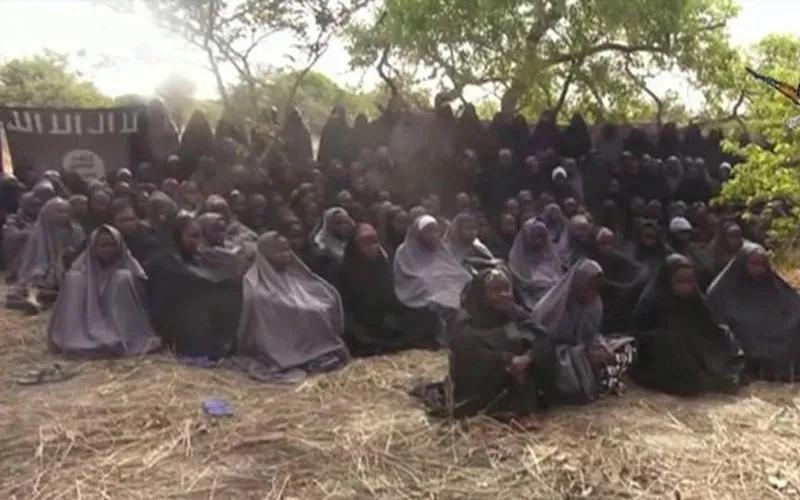
Bishop Kukah poses, “Will the federal government continue to reward and fund Boko Haram by playing its game? How long can this circle of deceit last for given that every kidnap merely strengthens their arsenal? The men of darkness have shown far greater capacity to shock and awe a forlorn nation by constantly blindsiding us all. When will it all end?”
Amid these challenges, Bishop Kukah questions the country’s leadership saying, “This government owes the nation an explanation as to where it is headed as we seem to journey into darkness.”
In the Bishop’s view, the killings in Nigeria “must be related to a more sinister plot that is beyond our comprehension. Are we going to remain hogtied by these evil men or are they gradually becoming part of a larger plot to seal the fate of our country?”

(Story continues below)
“President Buhari deliberately sacrificed the dreams of those who voted for him to what seemed like a programme to stratify and institutionalise northern hegemony by reducing others in public life to second class status,” Bishop Kukah says.
Nigeria’s President “has pursued this self-defeating and alienating policy at the expense of greater national cohesion. Every honest Nigerian knows that there is no way any non-Northern Muslim President could have done a fraction of what President Buhari has done by his nepotism and gotten away with it,” the Nigerian Bishop further says.
He continues, “The President may have concluded that Christians will do nothing and will live with these actions. He may be right and we Christians cannot feel sorry that we have no pool of violence to draw from or threaten our country. However, God does not sleep. We can see from the inexplicable dilemma of his North.”

The Bishop goes on to explain, “For a long time, beyond the pall of politics, very prominent northerners with a conscience have raised the red flag, pointing out the consequences of President Buhari’s nepotism on national cohesion and trust. With time, as hunger, poverty, insecurity engulfed the north, the President’s own supporters began to despair and lament about the state of their collective degradation.”
“One Northern Imam after the other have posted videos of lamentation on the social media asking why, with all the cards of power in the hands of northern Muslims, everything is bursting in the seams. How come our region has become a cesspool of blood and death? Why did President Buhari hand over a majority of the plum jobs to Northern Muslims? Was it for efficacy and efficiency? What was the logic? President Buhari must pause and turn around because his policy of nepotism has been rejected by the gods,” Bishop Kukah poses.
He recounts, “The Emir of Katsina, the President’s home state, only recently said; We cannot continue to live like animals. I have not seen this type of country. His Eminence, the Sultan of Sokoto, Alhaji Sa’ad Abubakar said that the north has now become the worst part of the entire country. The Senate whose leadership is almost totally dominated by Northern Muslims has raised alarm. The Northern Elders’ Forum has called on the President to resign. Has the politics of nepotism run its course? Perhaps, the spirit of Christmas should offer us an answer.”
Bishop Kukah looks back at the time Nigeria’s head of state took leadership saying, “After he assumed power, a delegation of the Catholic Bishops’ Conference had audience with President Buhari. In the course of our discussion, the President shared with us his frustration over the state of decay and rut that he had met. In frustration, I vividly recalled him saying that, from the decay and neglect, it seemed as if preceding governments had been doing nothing but just eating and going to the toilet!”
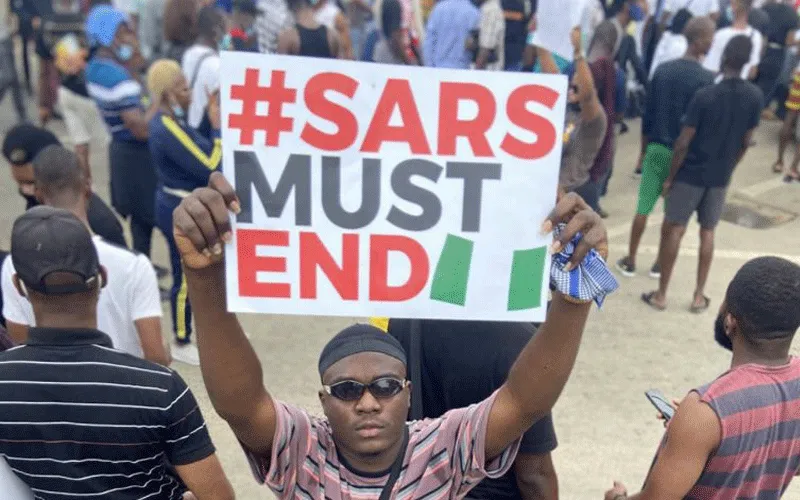
The Bishop continues, “Looking back, one might conclude that those were happy times because at least there was food to eat and people could go to the toilet. Now, a journey to the toilet is considered by the poor an extra luxury. Our country’s inability to feed itself is one of the most dangerous signs of state failure and a trigger to violence.”
Despite the many challenges, Bishop Kukah acknowledges the resilience of Nigerians, making reference to Holy Scripture.
“We stand firmly with the unshaken belief that no matter the temptations, the world has known worst times. These may be the worst of times, but for men and women of faith, they could be the best of times. We must stand firm and resolute because, our redeemer liveth,” the Bishop says citing the Book of Job.
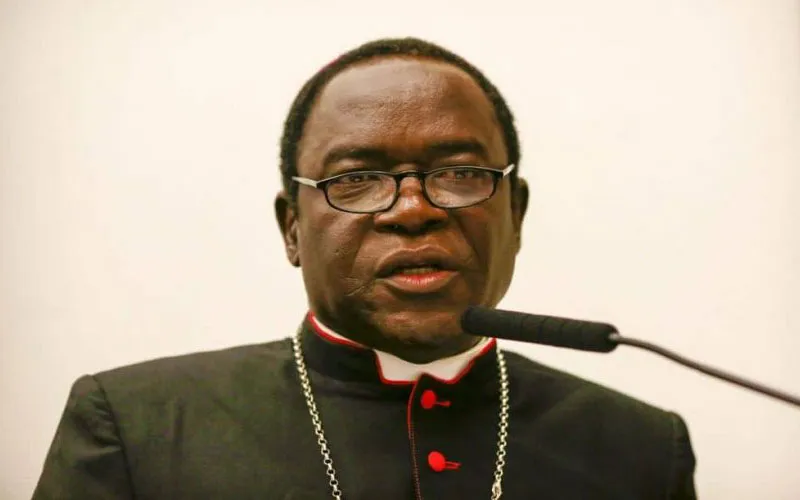
It has not all been gloom and doom, the Bishop says and encourages a hopeful attitude.
“At various levels, there have been grey areas of hope, flickers of light, achievement and so on. It is to these flickers of hope that we must cling tenaciously,” Bishop Kukah says.
For him, Nigeria needs to begin pulling together. For instance, the Bishop says, “It is not enough to blame the military. After all, they neither run the economy or the bureaucracy. It is not enough to blame even the political class or even the President alone. We found our way here by the choices we have made as a nation over time.”
Addressing himself to Christians in Nigeria, the Bishop says, “The light of Christ which we all received at baptism calls on us to act in the mind of Christ. To be a follower of Christ is to be in his footsteps. This moment calls on us as Christians to celebrate the simplicity of Christ represented in Christmas. Joy to the world, the Lord has come, the song says. Jesus has offered us a roadmap. We are challenged to bring light into the darkness of our society.”
“We have no reason to doubt that at the fulfilment of time, in His own time, the Lord will dispense justice to our nation. It will come as day follows light,” Bishop Kukah says, citing the Psalms.

“On the sad situation in Nigeria, the United Nations has wailed. The Pope has wailed. Cardinals, Archbishops, Bishops, Priests, Pastors have wailed. Emirs have wailed. Politicians have wailed. The Sultan has wailed,” Bishop Kukah says in his Christmas message that has triggered controversy and condemnation from some quarters.
The Bishop says in conclusion, “Surely, it is time for the Lord to hear the wailer as they have sung their redemption songs … Let us unite and seek the Lord in sincerity because the Lord will vindicate the righteous.”
Meanwhile, Bishop Emmanuel Badejo of Nigeria’s Oyo Diocese has come to the defense of Bishop Kukah saying he concurs with his brother Bishop’s message “in all its elements.”
“Where else could I stand, given my conviction that the Bishop of Sokoto wrote it sincerely for the purpose of making Nigeria better,” Bishop Badejo poses in a message shared with ACI Africa on New Year eve, December 31.
